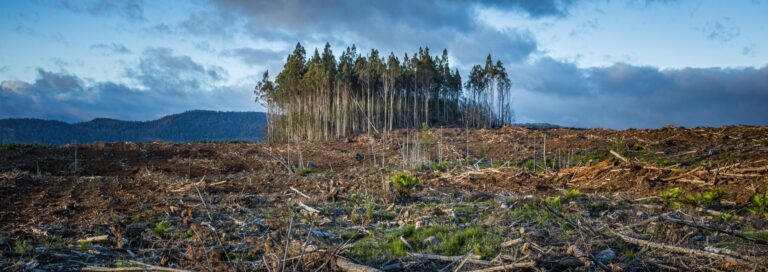
Reflections on COP26
The crucial UN climate summit in Glasgow, COP26, finished on Saturday 13 November. How much did it achieve and how did it deal with the population issue and neglected, positive solutions?
Population Matters Director Robin Maynard led our four-strong team in Glasgow and reflects here on their experiences and the bigger picture.
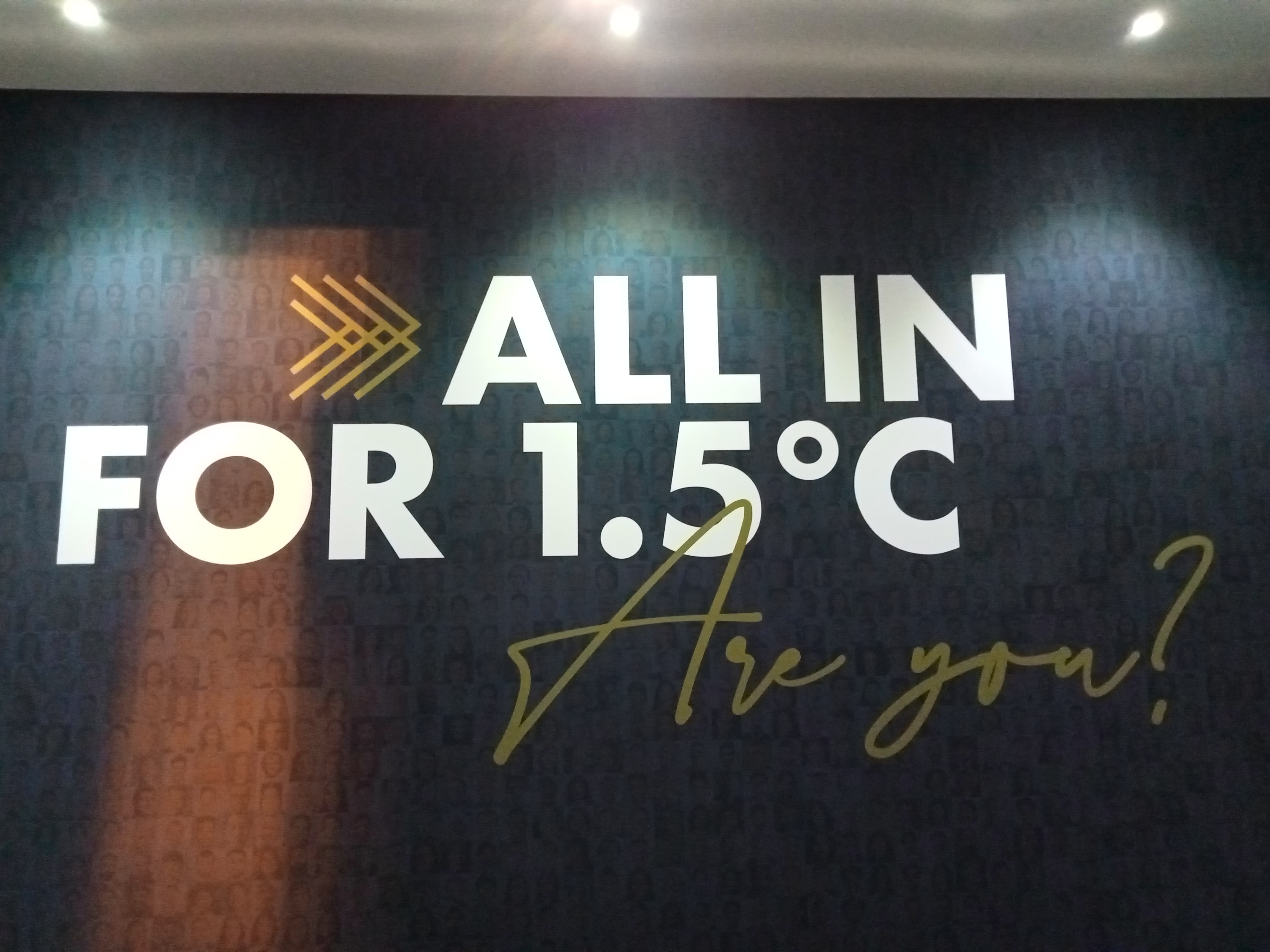
In their recent blogs, my colleagues Andrew Howard and Olivia Nater have provided detailed analyses as to why the issue of our human population should have been firmly on the agenda at COP26 (both as a factor adding to climate change and a solution offering real benefits to people and planet) and to what extent it was raised by whom over the two-weeks-and-a-day of the climate summit. So, this is more a personal reflection on returning to reality…
First, a quick summary of the event and its outcomes:
- 196 countries sent delegations and there were 40,000 registered participants. 12,000 NGOs were represented and an estimated 50-100,000 climate activists congregated on the outside.
- Population may not have been on the official agenda at COP26, but PM succeeded in raising the issue on several occasions and in the media, and we found a good number of friends supporting us – especially delegates from the Global South.
- COP26 was astonishingly the first of 26 to directly mention fossil fuels and talk about phasing out coal and fossil fuel subsidies. Although the weasel phrase of ‘phase down unabated coal’ slipped in at the end (see below).
- The target of holding temperature increase globally to an average of 1.5 °C is claimed by politicians to be still alive – or at least on a ventilator, but according to a new analysis, if only existing plans are implemented, the world is heading for a very dangerous 2.4 °C rise.
- 141 countries signed up to halting and reversing deforestation and land degradation by 2030, yet the funding pledged to achieve this is far from sufficient.
- Countries agreed to review progress on actions annually.
- Young people and indigenous groups made their voice, anger and frustration heard more than ever before.
- The fact that Alok Sharma, COP President, was reduced to tears at the watering down of the deal at the last minute by big coal-burning countries China and India says it all.
PM fielded a modest team of four to navigate the complex of vast halls and maze of interconnecting corridors, identify which of the hundreds of formal events and fringe meetings to attend, and search out potential friends, allies, partner organisations amidst the ever-flowing sea of people moving from one part of the complex to another.
On my first morning, I suffered sensory overload. It felt like I had been dropped into a horizontal Tower of Babel, myriad voices, interest groups, corporates promoting their tech-fix solutions or in the case of the hundreds of fossil-fuel industry reps, lobbying to slow down and dilute action. Major emitters like China and the US, top deforester Brazil, entertained delegates and hosted meetings in their ‘pavilions’ spinning their ‘narrative’ and shifting the agenda onto their preferred path.
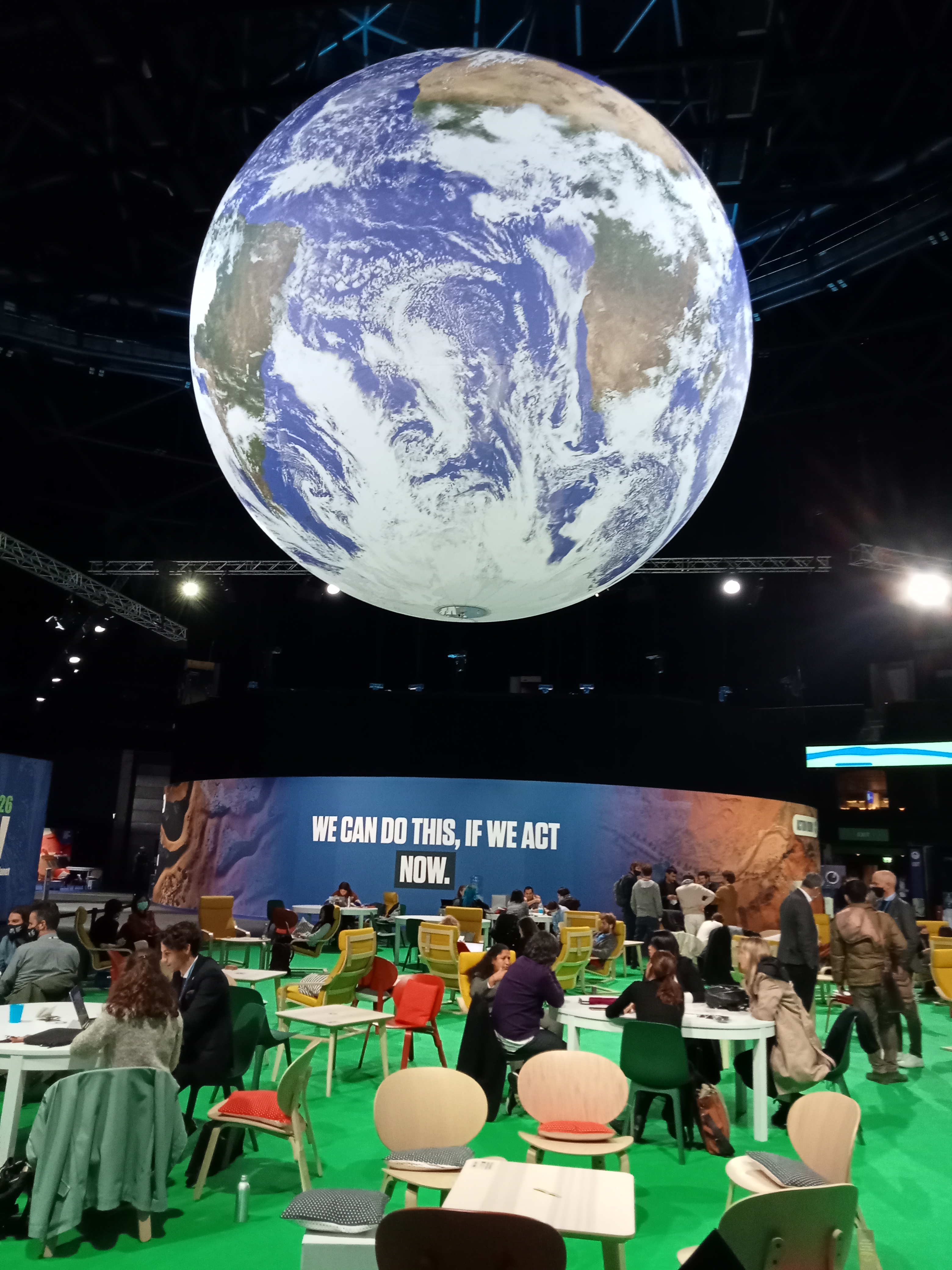
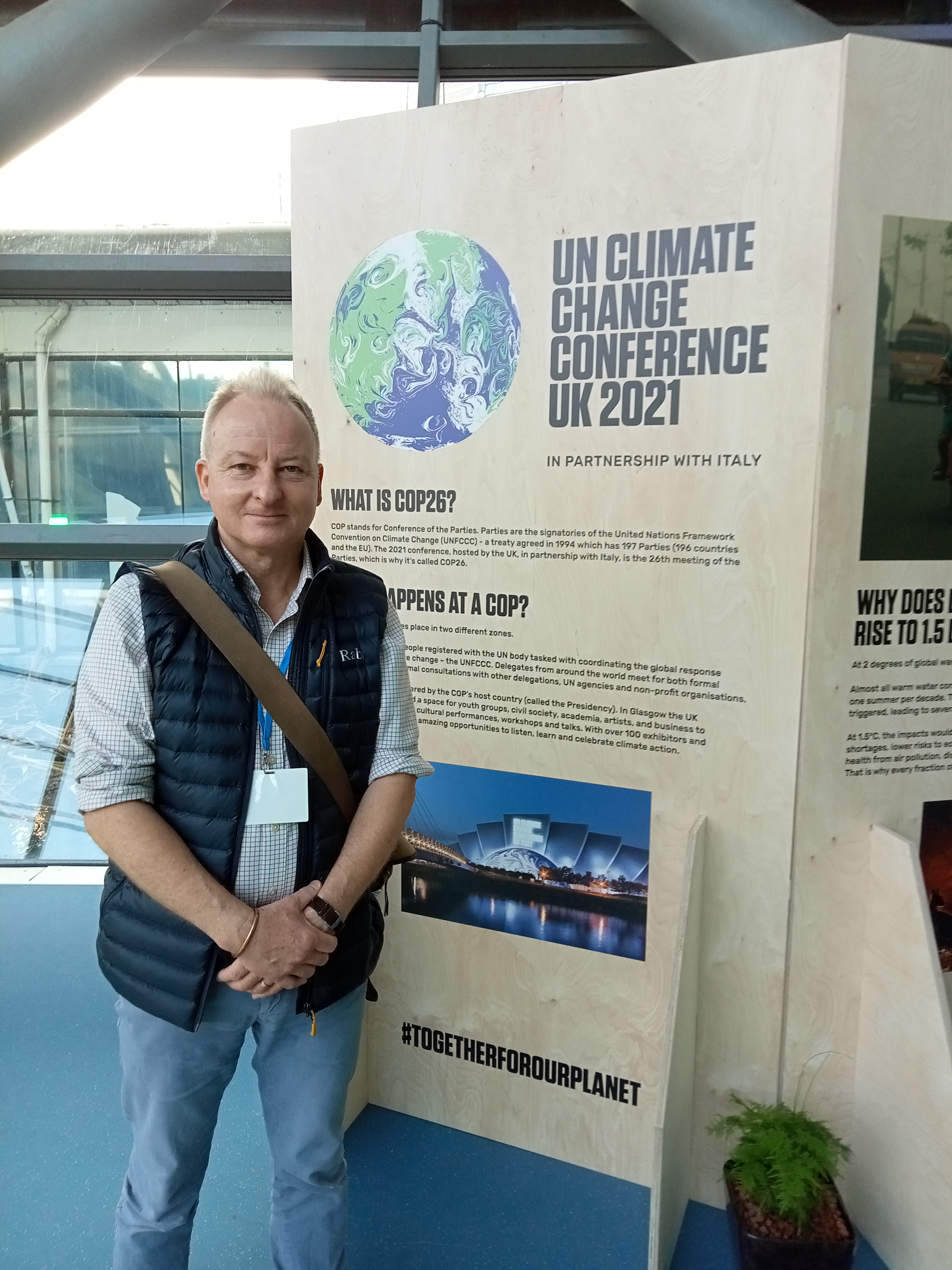
Where was I meant to be, trying to meet who? What possible impact could PM make amidst this melee? Drawing breath under the iconic globe hanging above the ‘Blue Zone Action Space’ as seen in many media shots, I oriented myself with the strategic plan and briefing drawn up by Andrew ahead of us heading to Scotland. Yes, we had focus, a selection of key meetings allocated to each team member, a hit-list of individuals, NGO reps, policymakers and officials to make contact with, and our own set-pieces organised to gain public and media attention and so raise awareness of our issues – our narrative.
The most prominent of those being the ‘flight’ of our 7-metre high, inflatable ‘Big Baby’. Bold pink, clutching an international jet airliner, and with a bib bearing the message, ‘Smaller Families, Cooler Planet’, Big Baby’s purpose is to draw attention to the significant contribution that individuals, especially in rich, high consuming, high emitting countries like the UK, can make to curbing climate change by choosing to have a smaller family. Big Baby did his job, gaining media coverage across the world.
Big Baby also highlights that the individual choice available in high-income countries, with modern, extensive health care systems is not for hundreds of millions of women in poorer countries. Meeting the unmet contraceptive need of those nearly 270 million women, alongside ensuring all girls the opportunity of education, would result in significant reductions in climate change emissions and ultimately, a lower global human population. Who could object to such a win-win solution for people and planet?
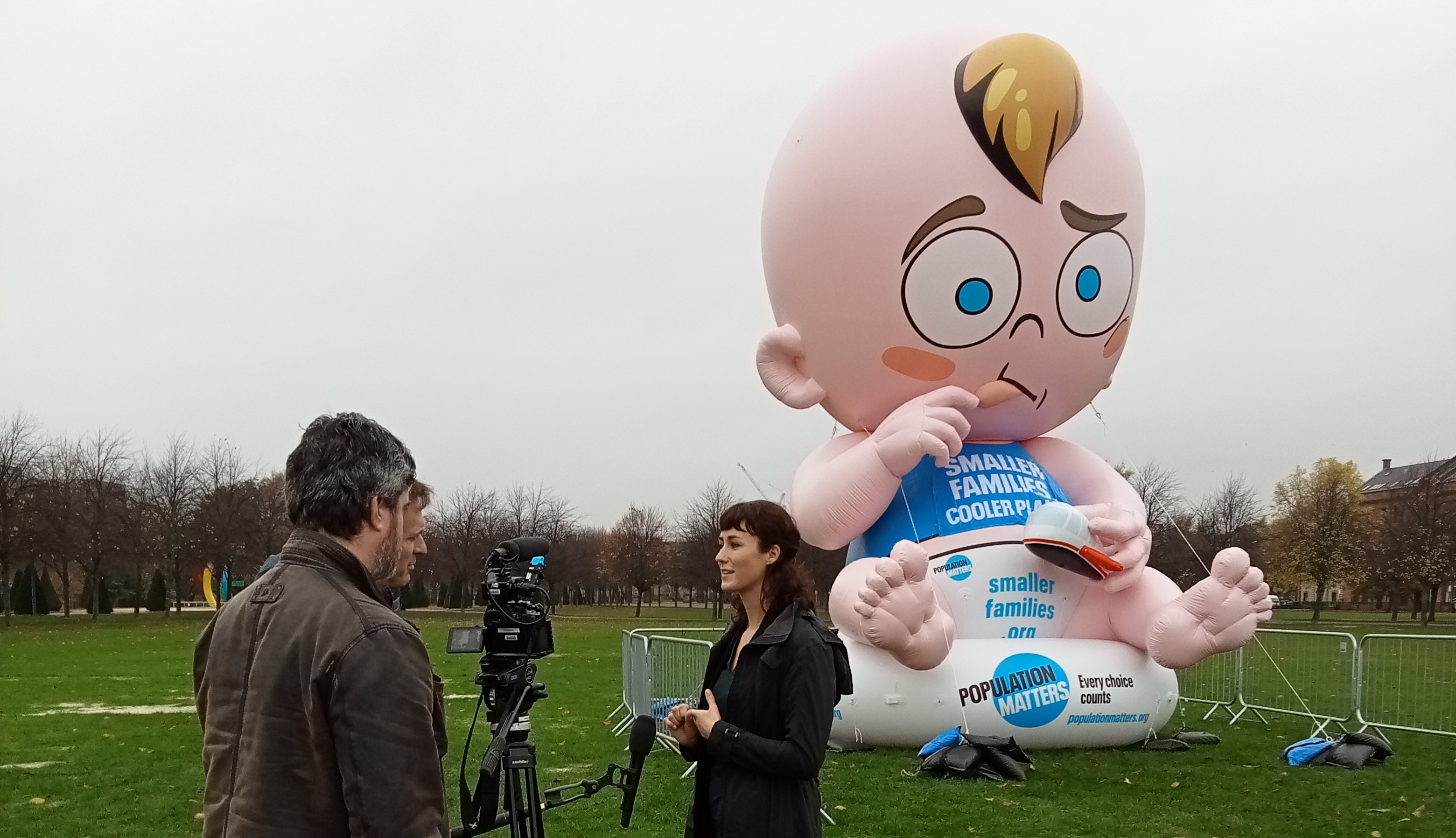
Quite a few folks it turns out! Counter-intuitively some from organisations and groups that consider themselves progressive, prioritising women’s rights, and highlighting the negative impacts of climate change on those in the front-line – especially women and children in the poorest countries. Yet when I raised the fact of that secondary, additional benefit arising from giving hundreds of millions of women the choice and right they want at a fringe meeting in COP26, one delegate’s response was that this was ‘a white supremacist, colonialist, racist framing’, closing down any further discussion.
How ironic and absurd: ‘White supremacists’ with toxic views (I won’t repeat their despicable assertions) call PM ‘anti-white’ racists for advocating for smaller family size in the Global North. Meanwhile, some representatives from organisations working, like PM, to empower women and enable choice, pass judgement on us as ‘white supremacists’ for highlighting the additional, evidenced environmental and climate benefits arising from meeting those rights. (You can read our response to those kinds of accusations here.)
Thankfully, other clearer, less conflicted, more credible voices were present at and feeding in to COP26. Voices with greater legitimacy and authority to judge whether or not there is and should be a synergy between addressing women’s rights, population growth and tackling climate change. Voices that I was privileged, and much reassured, to hear at the fringe meeting, ‘Building the nexus between climate change, family planning, reproductive health, population, environment and development’, held in the World Health Organisation’s pavilion on my last morning at the summit, and chaired by Dr Eliya Zulu, director of the African Institute for Development Policy (AFIDEP), and the keynote speaker at PM’s 2021 Conference in October. You can watch the recording here.
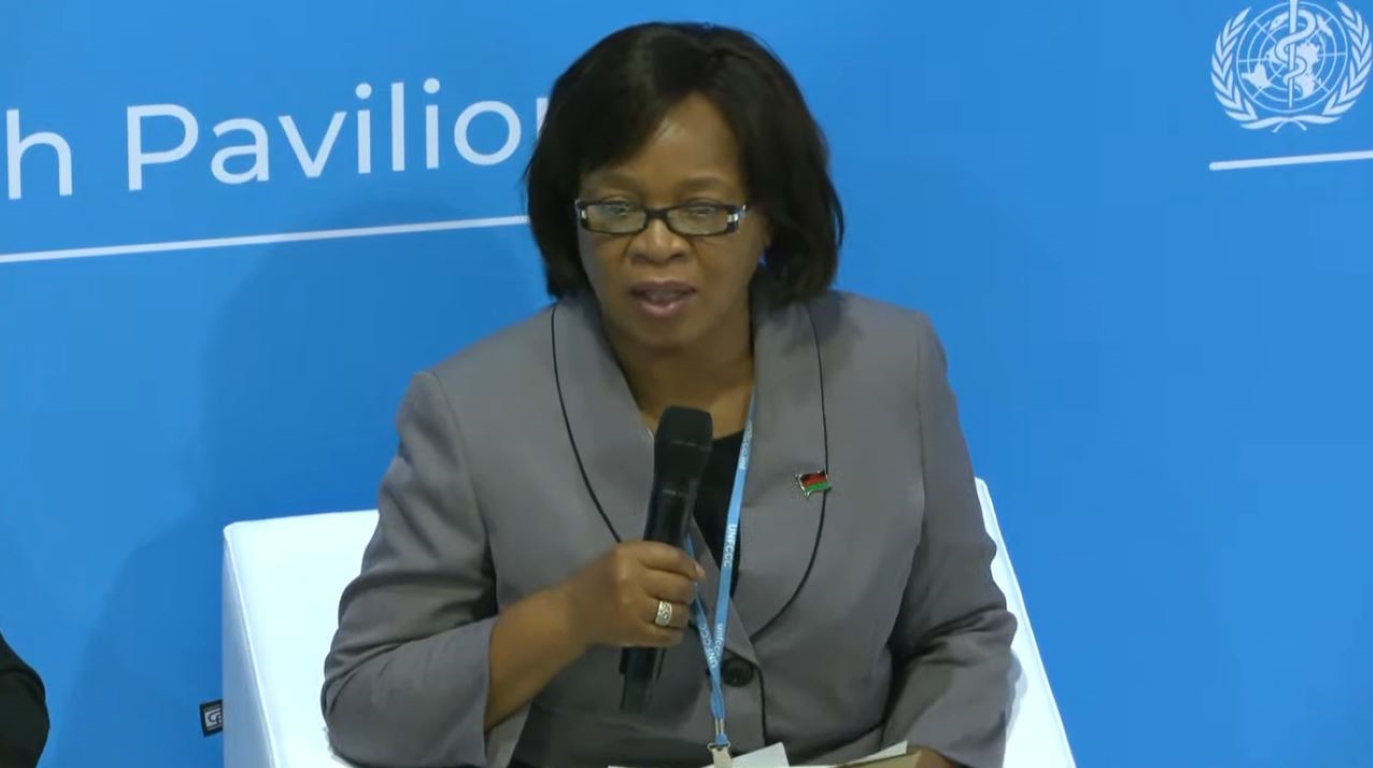
Opening the session, Dr Zulu observed that, apart from this meeting, the issue of population was barely on the agenda, “If you go around this COP or previous conferences, the ‘p’ word, as I call it, seems to be forbidden”. Following on, Nancy Tembo, Malawi’s Minister of Forestry and Natural Resources, spoke unequivocally: “Malawi is highly populated, highly vulnerable to climate change- we have rapid population growth. This is a recipe for disaster.” In stark contrast to the deeply judgemental assertion that there was no positive linkage for family planning as a mitigation, as well as an adaptation, strategy, she went on to say,
“Unless we address issues of reproductive health and population, we will not achieve anything… Addressing gender and population growth need to be at the centre of climate mitigation and adaptation.”
If humanity is to overcome the existential challenge of climate change, build a fairer world, one where women everywhere have choice, and regenerate our natural world, all progressive, ethical and rights-based groups need to speak with ‘one language, and of one speech’ (Genesis 11:1–9). That is, find a common narrative. The alternative, like the Tower of Babel, is chaos and collapse.


